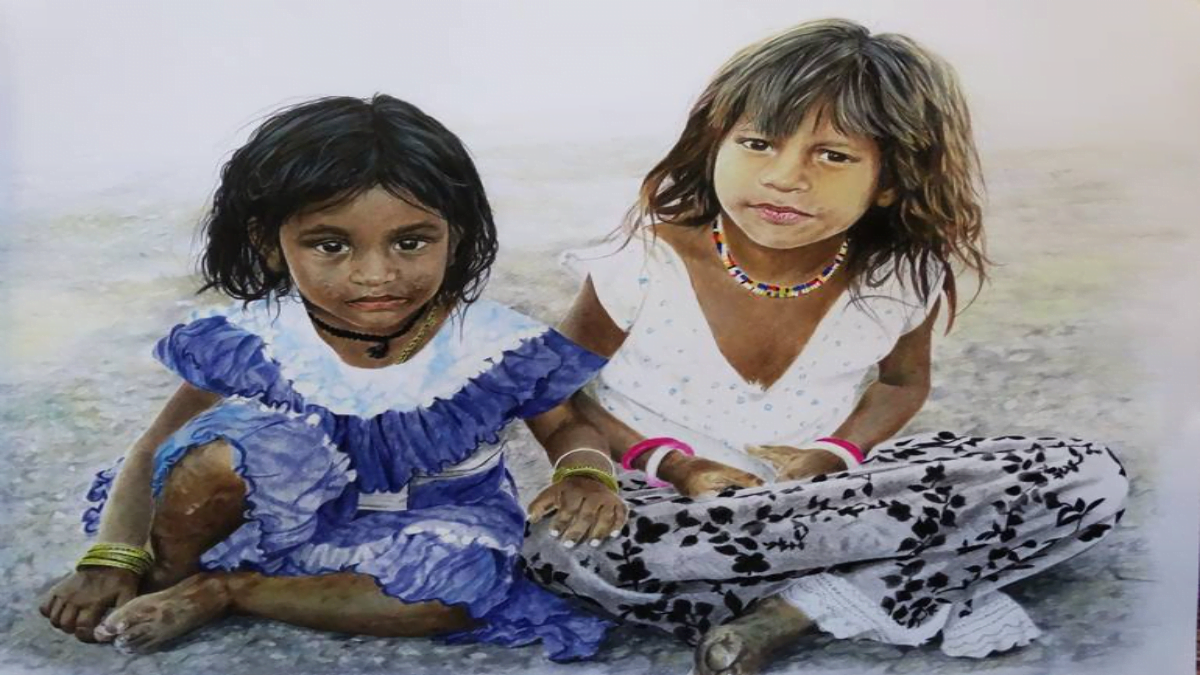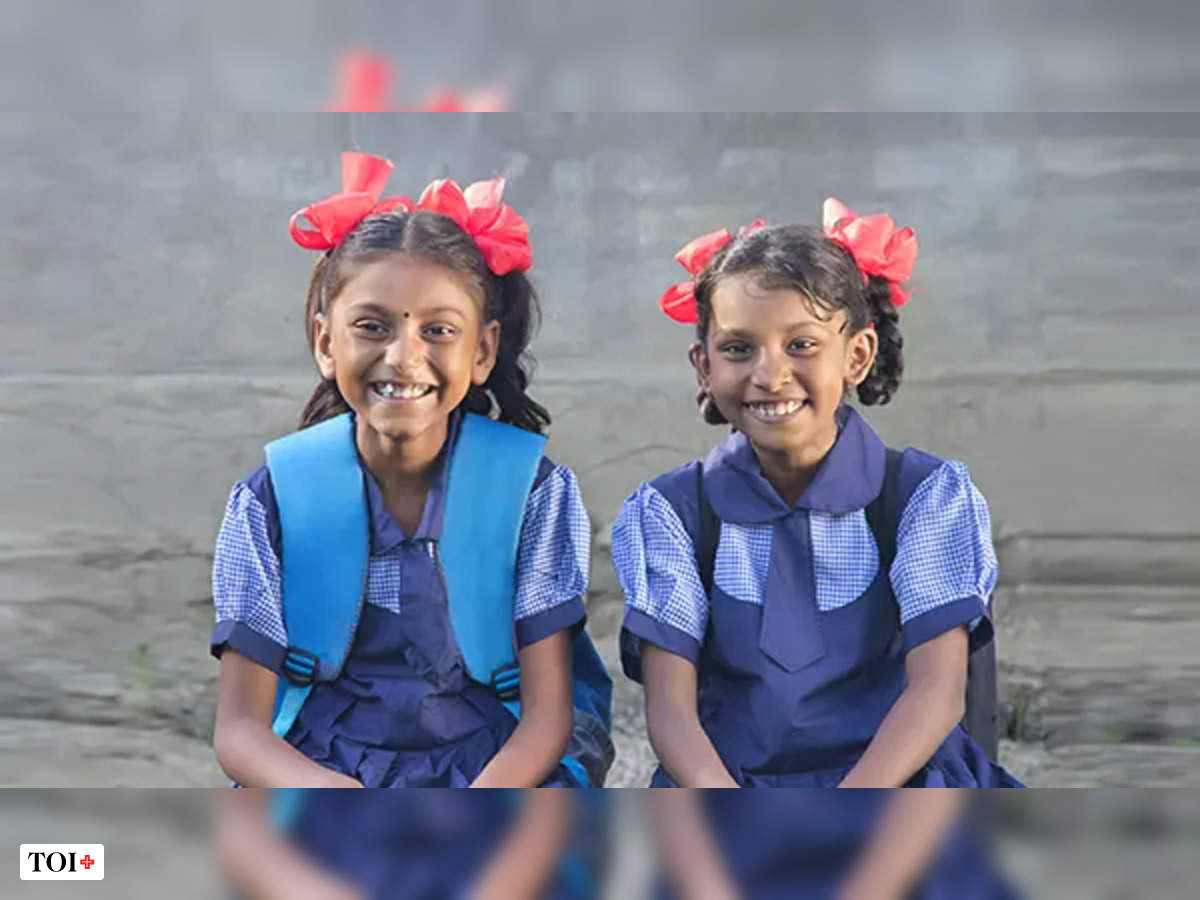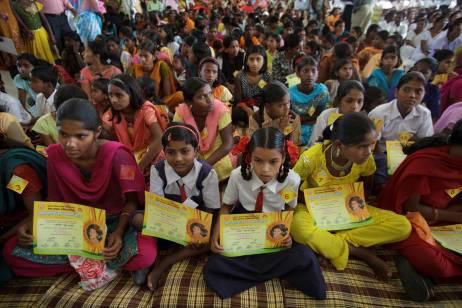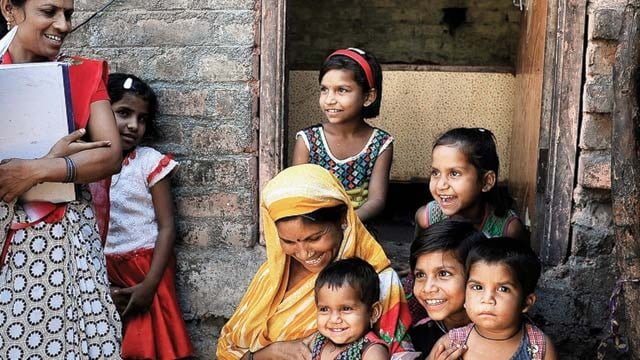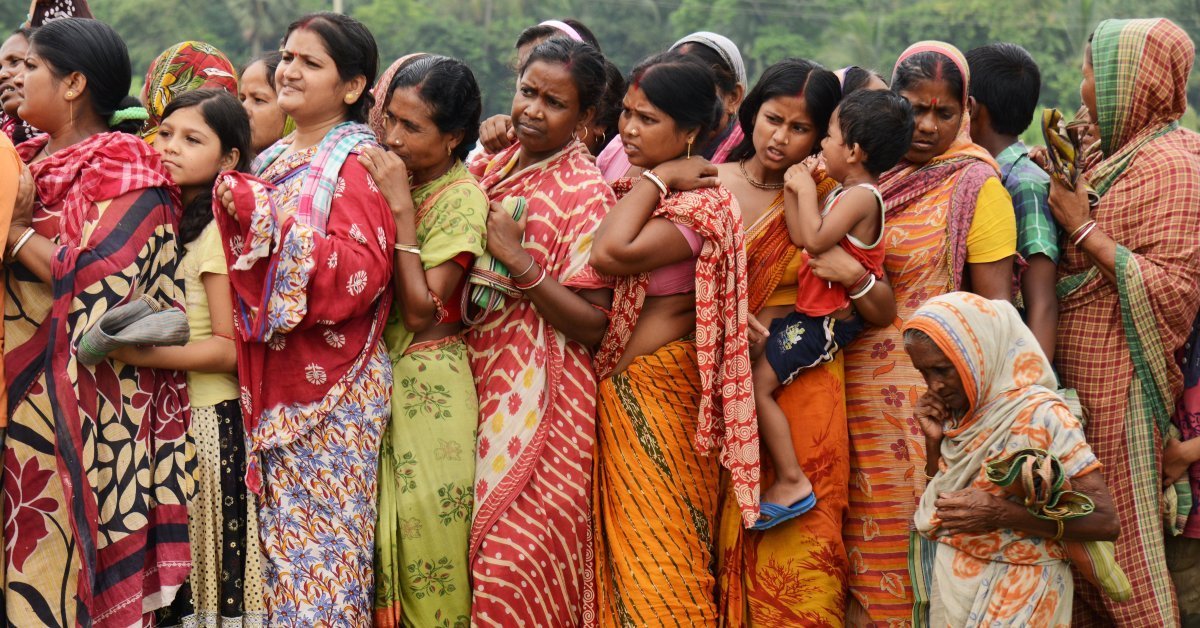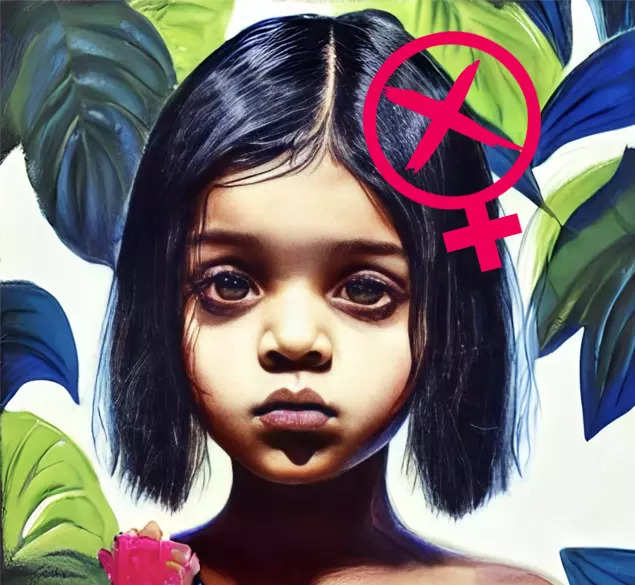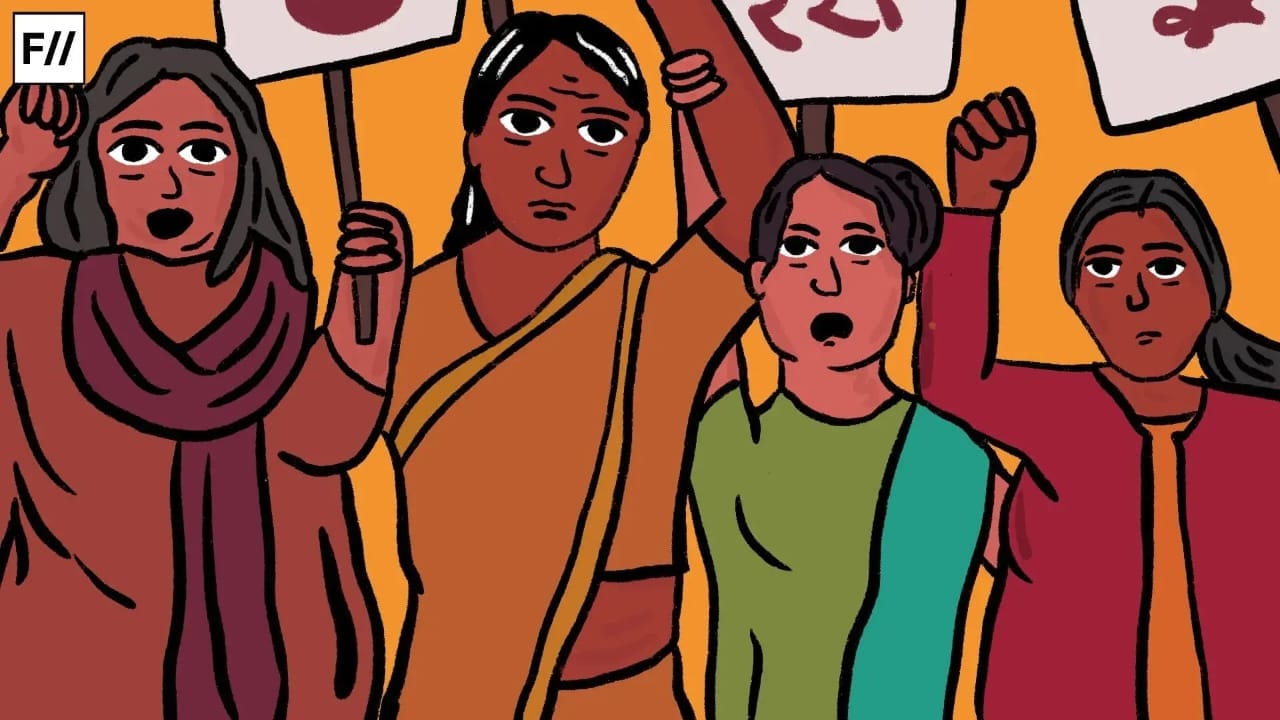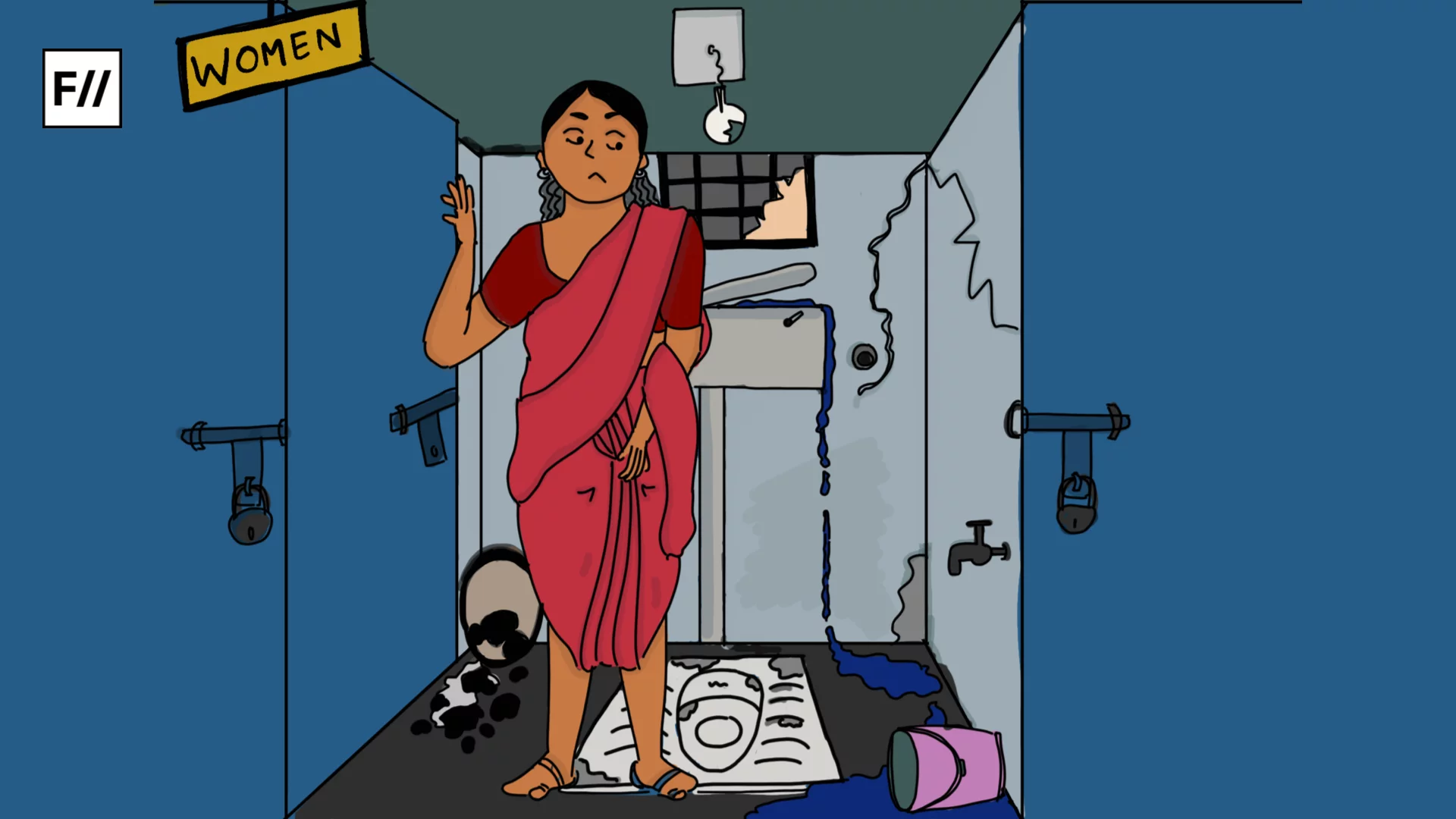‘The ones who are poor, especially girls born into poor families, cannot afford to even dream about a dream,’ Kopal replied when researchers asked if she has any dreams of her own. Kopal (The name has been changed to protect privacy), a 21-year-old from Kamathi village of Kanher Taluka of Maharashtra’s Satara district, still remains a ‘Nakusa’ or ‘Nakoshi‘ (literally meaning “unwanted” in Marathi) in official records. Kopal was 10 years old when she was rechristened in the name change ceremony. However, it’s been over a decade and she still awaits her name to be officially changed but the family can’t afford the cost of changing her name on record.
Kopal (The name has been changed to protect privacy), a 21-year-old from Kamathi village of Kanher Taluka of Maharashtra’s Satara district, still remains a ‘Nakusa’ (literally meaning “unwanted” in Marathi) in official records.
Kopal, the fifth daughter born in a family longing for a male child, was named ‘Nakusa’ by the elderly ladies in her family. Three of her four sisters were married off at an early age due to the poor financial condition of the family and the fourth sister lives with her as she is verbally disabled. So, Kopal has to look after her disabled sister and her father who is a Mathadi labourer. Kopal had to discontinue her education due to her family’s poor financial background.
Even today, Kopal aspires to be an independent working woman but her father doesn’t allow her to cross the boundaries of her home, because the women in their family don’t work outside. She recently lost her mother and has taken over complete household work and responsibilities at the farm. Yet she thinks it would have been better if she was a boy to shoulder the family’s financial responsibility, like a son would have.
Another story of Vinda (name changed), who lives in a Bavdhan village in Satara is no different. She had four siblings, three sisters and one brother, of which her oldest sister and the youngest brother died in childhood. Vinda’s mother had borne several daughters at the time of her birth, so her parents named her ‘Nakoshi‘ out of frustration of not having a boy as they were expecting a son. They sternly believed that the next born would be a boy if they named her ‘Nakoshi‘. But her parents were disappointed as their next-born child was again a girl. It was after many years her mother finally gave birth to a boy. But unfortunately, the boy died in childhood. It was an extremely hard time for the family. Her mother underwent a tubectomy when she delivered a boy after four girls and was happy that the wait was over. However, after the son’s unfortunate demise in childhood, she again went under the knife for a Tubal ligation reversal with hopes of giving birth to another son. But the surgery was unsuccessful rendering her mother unable to bear any children thereafter. The desperation of the family to have a son that made them reverse the tubectomy surgery after their son’s death, only displays the unyielding hold of patriarchy in the social structures of family systems.
The family perceives that a name hardly holds any value and continues to call her Nakoshi out of habit even after the ceremony.
The family got their daughter Nakoshi (Vinda) married at the age of 15 after she failed her 10th grade exam with no dowry. Vinda had taken admission to continue her 10th grade studies via distance learning so that she could cater to her familial responsibilities and earn daily wages as well. However, she could not pass the 10th grade exam, and eventually left her education. The family perceives that a name hardly holds any value and continues to call her Nakoshi out of habit even after the ceremony.
Today, Vinda is a 25-year-old homemaker with three daughters. She and her husband are trying for a son. Vinda’s life hasn’t changed for good and neither has her name in these 10 years. Officially, she still remains a Nakoshi because she and her family gave up on any name change procedures due to the exhausting red-tapism and procedural hurdles. Vinda and her husband mentioned how the district officials did not provide any sort of help in guiding them on the protocols of name change. Although Vinda did not name any of her daughters Nakoshi. She is eager to bear a son as she, herself, still feels the burden of being “unwanted”.
This cultural bias against a girl child is still prevalent in most of India, including the state of Maharashtra where sons are preferred over daughters for economic, social and religious reasons. Daughters are seen as an economic burden especially in places where the dowry culture exists. Hence, a dispreference for daughters also leads to violence in the form of extreme acts like female foeticide. Another aspect of this dispreference is reflected in an unfair practice when a family names their daughter as ‘Nakusa/Nakoshi’ literally meaning “unwanted” in Marathi.
Another aspect of this dispreference is reflected in an unfair practice when a family names their daughter as ‘Nakusa/Nakoshi’ literally meaning “unwanted” in Marathi.
Mostly, extremely poor and socially marginalised families with several female children and no male child named their last born daughter (or higher in birth order) as Nakoshi or ‘Nakusa/Nakusha’, out of frustration, prejudice and ignorance, in Satara. This practice is observed to be prevalent in the Hindu religion across castes and classes, although mostly prevailing in lower socioeconomic strata. There existed a superstitious belief that if their last born daughter was named ‘Nakoshi’, then their next-born would be a son. The patriarchal social conditioning of preferring sons over daughters to carry on the lineage thus prompted several families to give such offensive name to their girl child.
According to the survey conducted by district administration in 2011, around 265 females were found with the name Nakoshis. The survey was conducted specifically to get data on such names and devise a public policy to discontinue the regressive practice. Hence, the health officials of the day launched a renaming drive to make the 265 girls named Nakoshis feel ‘wanted’.
Although the renaming ceremony was lauded for its initiative, administration had provided them with only name-change certificates. The administration had not approached the regional office for gazette notification (of name change) and no follow-up was undertaken on this issue. Nearly all the Nakoshis belonged to poor families- a fact which the authorities overlooked. These families could not afford to carry out the official procedures by giving up on their daily wages and paying a gazette charge. They certainly would not have any motivation to change names officially if no incentive was provided or official procedures were made easy for them.
Dropping out of schools and child marriage were some of the major challenges concerned with Nakoshis.
Dropping out of schools and child marriage were some of the major challenges concerned with Nakoshis. However, the district administration seemed to have failed to address these issues. No further help was provided to the families nor was any effort made to monitor if their names were changed officially. The district officials never approached the girls after the name change ceremony. It seemed the rechristening was merely ceremonial, a sign of tokenism that gained publicity in the media.
The ‘Nakoshi’ name was mentioned in the official records and certificates of girls. A girl being addressed as “unwanted” in every casual conversation since birth bears a negative impact on her self-image. Gram Sabhas of every village alongside State and Central government should mandate that naming their daughter with any derogatory names like Dagadi or Nakoshi would be an offence. Campaigns against superstitions and such blind beliefs should be widely and consistently promoted.
Changing mindsets will take its due course but the government must ensure to provide a proper infrastructure to smoothen the journey of getting education. School administration and teachers, especially government schools which see large enrollment of Nakoshis and girls with other derogatory names, must be sensitised on the issue. They should first counsel the family on its effect on the child and also help them choose a new name before registering officially at the time of school admissions.
School administration and teachers, especially government schools which see large enrollment of Nakoshis and girls with other derogatory names, must be sensitised on the issue.
While discussing the possible initiatives for Nakoshis, a government officer argued that, ‘Nakoshi is not a special category, as the government, anyway, provides concessions to girls. Hence, we didn’t consider providing additional benefits to the Nakoshis.’ However, one cannot overlook the fact that the Nakoshis are the most vulnerable among all girls. They had to visibly face the discrimination in terms of additional burden of carrying a derogatory name as an identity; this definitely has a long-lasting negative impact on their self-esteem.
It’s never too late to make a difference. Although it’s been over a decade, the government can still collaborate with local NGOs and adopt the younger Nakoshis, to bear the educational expenses. The state can still equip these girls/women with relevant skill training, vocational guidance, and adult education programmes so that they can continue their education from where they dropped out. Supporting them economically (with a special financial package) will surely help improve their status.
Naming a girl Nakoshi only reflects the deep-seated gender realities and inequalities that cannot simply be wiped off through these superficial measures.
Naming a girl Nakoshi only reflects the deep-seated gender realities and inequalities that cannot simply be wiped off through these superficial measures. Indeed, it was a good initiative to end this practice of derogatory naming through the public renaming ceremony. However, even if it’s easy to change a name, it might be difficult to deal with the identity crisis these girls have to face since birth. Yet, no substantial efforts were taken by the government post the renaming ceremony. To improve the standard of living and self-esteem of these girls, they need more than just a tokenism of name change.
** The first article version of this study appeared in the Economic & Political Weekly (EPW) (Vol. 58, Issue No. 23, 10 Jun 2023) URL :
https://www.epw.in/journal/2023/23/special-articles/forgotten-nakoshis-satara.html
About the author(s)
Dr Priyanka is an independent researcher, currently based in Satara, Maharashtra. She holds a doctorate from the School of Social Sciences, Jawaharlal Nehru University (JNU). She is a demographer by training and a sociologist by choice. She is always keen to explore the stories behind numbers. Her research interests include gender, population and development issues in India.
